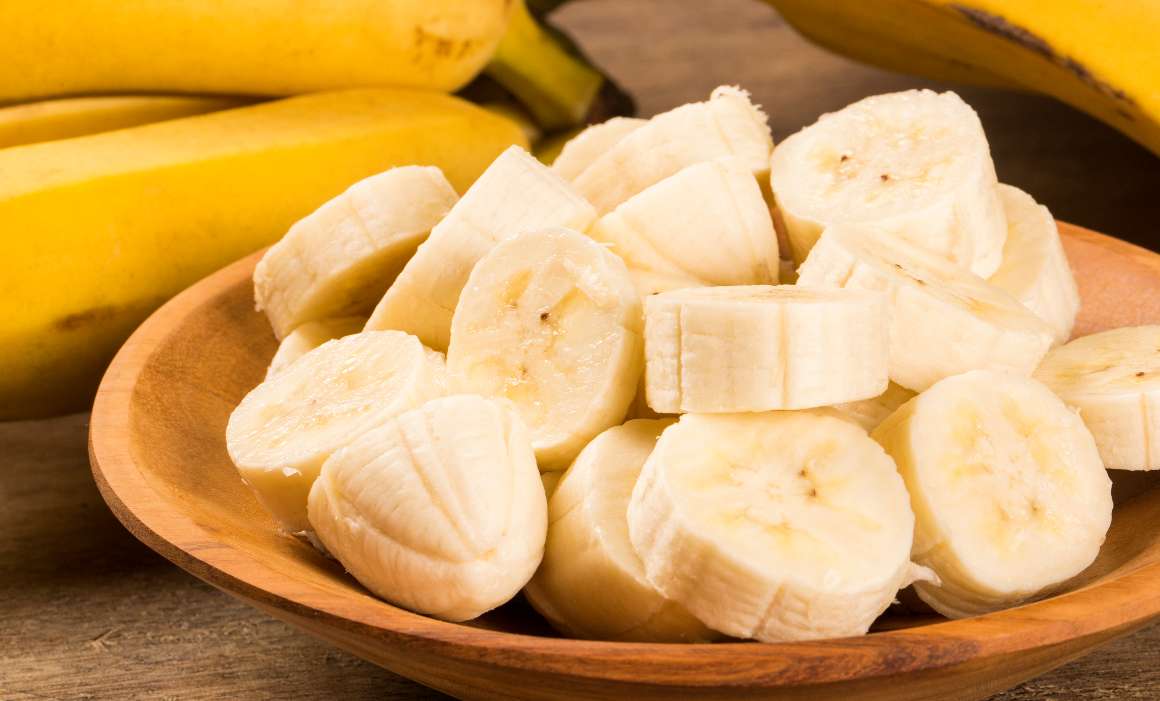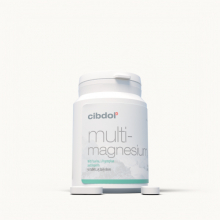Are Bananas High in Magnesium?
Last updated:
Published:
Did you know that beans and legumes, as well as whole grains, contain many nutrients that are essential for maintaining overall health? From supporting bone density to regulating blood pressure, magnesium, found in these foods, is a key player in our well-being. While we often associate magnesium with leafy greens and nuts, have you ever wondered if bananas could be a surprising source too? In this blog post, we'll dive into the perplexing question: are bananas high in magnesium?
Contents:
- Bananas as a Natural Source of Magnesium
- Boosting Magnesium Intake with Bananas
- Conclusion
-
FAQs
- Q: Can eating bananas provide enough magnesium for my daily requirements?
- Q: Are there any other fruits high in magnesium?
- Q: Can I get enough magnesium from supplements instead of food?
- Q: How can a magnesium deficiency affect my health?
- Q: Are there any side effects of consuming too much magnesium?
- Q: Can children benefit from consuming bananas for their magnesium content?
- Q: Are there any other health benefits associated with eating bananas?
Bananas and avocados have long been celebrated for their burst of energy and delightful taste, but their potential magnesium content has left many curious. With an authoritative tone, we will explore whether these popular fruits, along with beans and edamame, can truly contribute to our daily magnesium intake. So let's cut to the chase and uncover the truth about bananas, avocados, beans, and edamame and their role as potential sources of this vital mineral.
Magnesium matters – and so do beans and legumes. Join us on this informative journey as we unravel the mysteries behind these important minerals and their connection to your daily dose of many nutrients.

Bananas as a Natural Source of Magnesium
Bananas, along with leafy greens, legumes, and grains, are often hailed as superfoods for heart health. Not only are they delicious and convenient to eat, but they also provide essential nutrients like magnesium. Magnesium plays a crucial role in various bodily functions.
Bananas are a great option for heart health. While they may not be the highest source of many nutrients compared to other foods like chocolate, greens, almonds, Brazil nuts, black beans, spinach, avocado, whole grains, edamame, or pumpkin seeds; bananas still contain a moderate amount of this vital mineral.
Magnesium is an important mineral involved in over 300 biochemical reactions in our bodies. It helps regulate nerve function, maintain strong bones and teeth, support muscle health and relaxation, and plays a key role in energy metabolism. Consuming natural food sources rich in magnesium, such as greens and fish, can have numerous benefits for overall health.
Let's explore just how much magnesium, a great source for heart health, you can find in bananas. On average, one medium-sized banana contains approximately 32 milligrams of magnesium, making it an excellent source for meeting your daily recommended intake.
To put things into perspective:
Almonds contain around 76 milligrams of magnesium per ounce.
Brazil nuts provide approximately 106 mg of magnesium per ounce, making them a great source of this essential nutrient.
One cup of cooked spinach offers approximately 78 mg of magnesium per serving.
Black beans contain about 120 mg of magnesium per one-cup serving, which is 30% of the daily value (DV).
While these foods might be higher in terms of serving their magnesium content when compared to bananas; incorporating bananas into your diet can still contribute towards reaching your daily recommended intake for this essential mineral. DV and one are not applicable in this context.
Opting for natural food sources like bananas ensures you receive enough magnesium and the added benefits that come along with consuming whole foods. These include dietary fiber which aids digestion and supports gut health as well as other essential vitamins and minerals. Bananas are a convenient and portable snack that can be enjoyed on the go, providing a serving of magnesium towards your daily value (DV).
Boosting Magnesium Intake with Bananas
Incorporating bananas into a balanced diet is an excellent way to increase your magnesium intake. Not only are bananas delicious and readily available, but they also offer a range of other nutritional benefits alongside their magnesium content. Bananas are a serving of fruit that can help meet your daily recommended intake of DV for magnesium.
One medium-sized banana contains approximately 32 milligrams of magnesium, which is about 8% of the recommended daily intake for adults. This amount can contribute to meeting your daily magnesium needs.
Magnesium deficiency can lead to various health issues, including muscle cramps, fatigue, and even heart disease. By adding more magnesium-rich foods like bananas to your meals and snacks, you can reduce the risk of developing these problems. Adding dv-rich foods like bananas to your meals and snacks can help reduce the risk of developing health issues associated with magnesium deficiency.
The versatility and convenience of bananas make them an ideal snack or ingredient in meals throughout the day. Whether you enjoy them on their own as a quick pick-me-up or incorporate them into smoothies, oatmeal, or baked goods, there are countless ways to include bananas in your diet. Plus, bananas are a great source of magnesium, providing enough magnesium to meet your daily value (DV).
To boost your magnesium intake further, consider combining bananas with other foods that are high in this essential mineral, such as dark chocolate and leafy greens. For example, you can make a delicious smoothie by blending together bananas, dark chocolate, and spinach.
Pairing a medium-sized banana with a handful of almonds provides an additional 77 milligrams of magnesium, making it a great option for those looking to increase their dv intake.
Enjoying a sliced banana over a bowl of Greek yogurt adds extra creaminess and around 20 milligrams of magnesium to your daily diet. This combination is a great way to incorporate dv into your meals.Creating a
refreshing salad with sliced bananas and leafy greens such as spinach or kale offers both fiber and essential minerals. Adding dv to the salad will provide additional nutritional benefits.
Blending a ripe banana into a homemade smoothie along with some avocado adds healthy fats and additional magnesium.
Aside from their contribution to magnesium intake, bananas offer numerous other health benefits. They are rich in potassium, which is essential for maintaining proper heart health and blood pressure levels. The fiber content in bananas supports digestive health by promoting regular bowel movements.
Bananas are a valuable addition to your diet. They contain several nutrients, including magnesium and potassium, that contribute to maintaining strong bones. This is particularly important as we age and become more prone to conditions like osteoporosis.
Conclusion
In conclusion, bananas can be a valuable source of magnesium when compared to other foods. With their natural abundance of this essential mineral, bananas offer a convenient and accessible way to boost your magnesium intake.
Bananas are not only delicious but also packed with important nutrients. They contain an average of 27 milligrams of magnesium per medium-sized banana, making them a good choice for those looking to increase their magnesium levels naturally. Incorporating bananas into your diet can help you meet your daily magnesium requirements without resorting to supplements or other sources.
Increasing your magnesium intake is crucial for maintaining overall health and well-being. Magnesium plays a vital role in numerous bodily functions, including muscle function, nerve transmission, and energy production. By consuming foods rich in magnesium like bananas, you can support these processes and promote optimal functioning throughout your body.
To ensure you're getting enough magnesium from bananas, consider incorporating them into your daily routine. You can enjoy them as a quick snack on their own or add sliced bananas to cereal, yogurt, or smoothies. Get creative with recipes that incorporate this versatile fruit to maximize the benefits it offers.
Remember that while bananas are a good source of magnesium, they should be part of a balanced diet that includes other nutrient-rich foods as well. Variety is key.
So go ahead and grab some ripe bananas next time you're at the grocery store! By adding them to your diet regularly, you'll not only satisfy your taste buds but also give your body the essential magnesium it needs.
FAQs
Q: Can eating bananas provide enough magnesium for my daily requirements?
A: While bananas are a good source of magnesium, they may not provide all the magnesium needed for your daily requirements alone. It's important to consume a variety of nutrient-rich foods to ensure adequate intake.
Q: Are there any other fruits high in magnesium?
A: Yes, there are several other fruits that contain significant amounts of magnesium. Some examples include avocados, figs, and dried apricots.
Q: Can I get enough magnesium from supplements instead of food?
A: While magnesium supplements can be beneficial for individuals with specific deficiencies or medical conditions, it's generally recommended to obtain nutrients from whole foods whenever possible.
Q: How can a magnesium deficiency affect my health?
A: Magnesium deficiency can lead to various symptoms such as muscle cramps, fatigue, and irregular heartbeat. It's important to maintain adequate magnesium levels for overall health and well-being.
Q: Are there any side effects of consuming too much magnesium?
A: Excessive intake of magnesium through dietary sources is unlikely to cause adverse effects in healthy individuals. However, excessive supplementation may lead to diarrhea or digestive discomfort.
Q: Can children benefit from consuming bananas for their magnesium content?
A: Yes, bananas can be a nutritious snack option for children as they provide essential minerals like magnesium along with other important nutrients.
Q: Are there any other health benefits associated with eating bananas?
A: Yes, apart from being a good source of magnesium, bananas also provide potassium, vitamin C, dietary fiber, and antioxidants that contribute to overall health and well-being.















